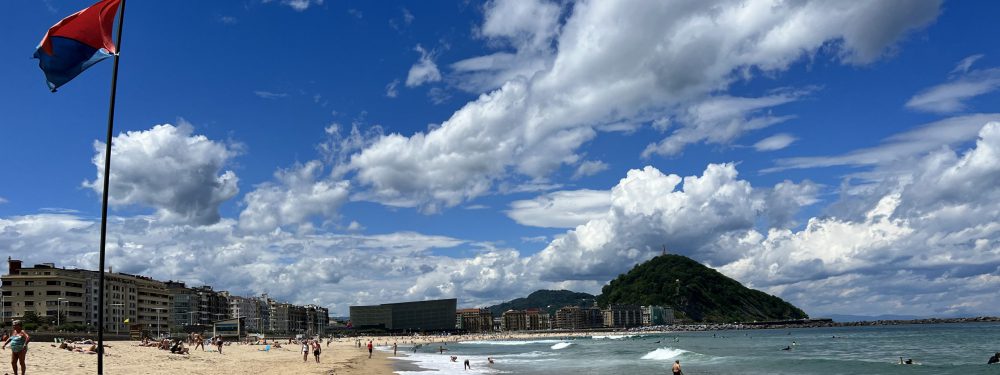Talai Berri is a small, family owned winery in a village en el Pais Vasco. Through five generations, Bixente Eizaguirre, his daughter and family have operated this location for thirty years. Talai Berri lies on the Talai Mendes slopes in Zarautz. The winery is small, but grand and overlooks the vast land of the vineyards that produce the Basque wine called Txakoli.
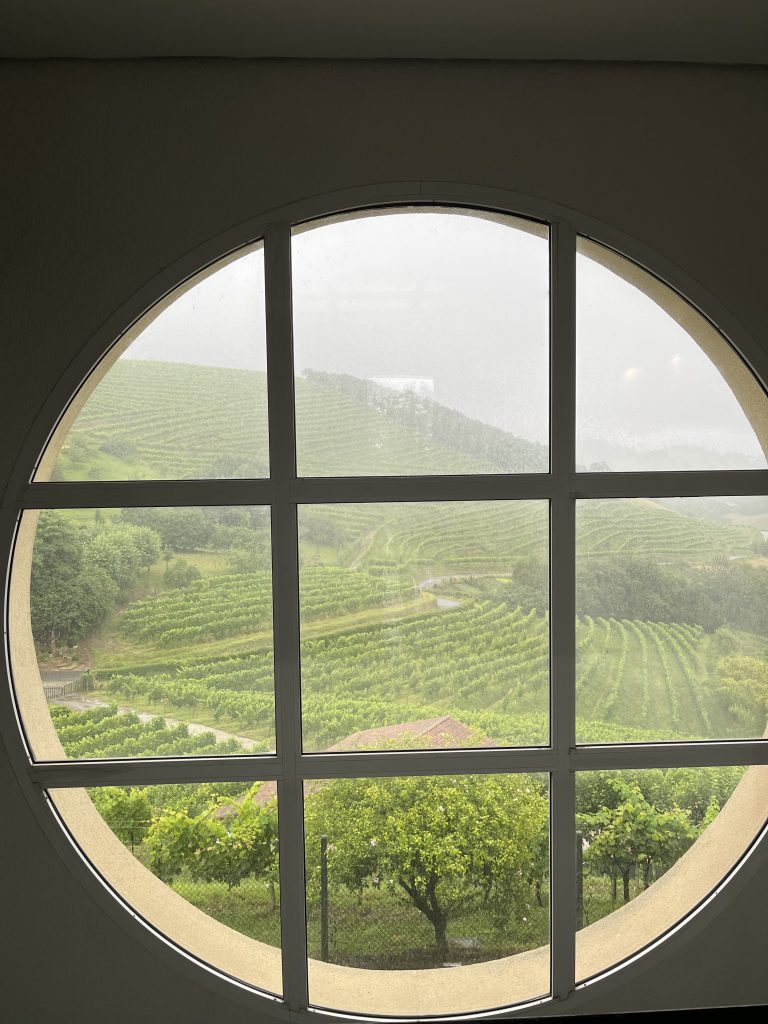
As soon as you enter the building, you are greeted with a breathtaking view of the vineyard. The air was misty over the vineyard with the light rain known as Txirimiri, an Euskera word used to describe the phenomenon that only happens in the foothills of the Pyrenees. Inside, to the right, the entrance to the wine tasting room. To the left, pictures of each generation of Talai Berri winemakers adorns the wall. Underneath those pictures, stands the remnants of a grape vine that dates all the way back to the first generation. As Bixente tells us his story, one can see how proud he is of his family and all that they have produced.
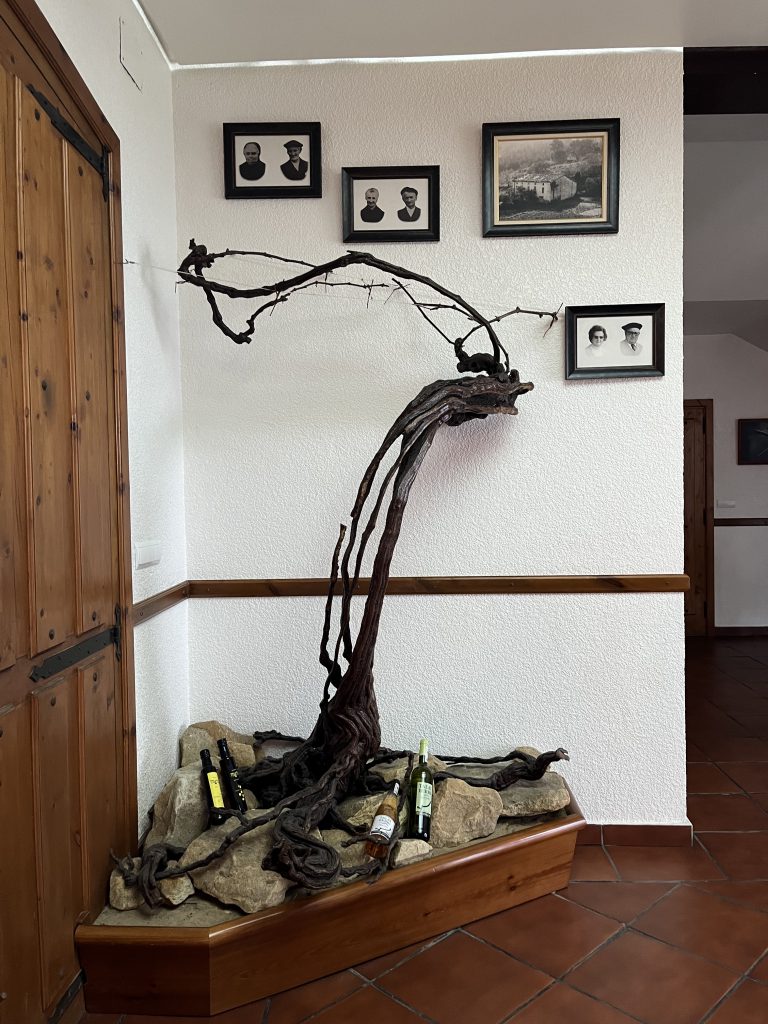
At Talai Berri, they produce four to five kilograms of grapes from each vine and fifteen kilograms are put into crates. To ensure the best quality of grape, the vines (which normally have four branches) are often cut to allow for new growth. The harvesting season begins at the end of September and in just twenty days, they are able to harvest all of the grapes (weather permitting). Each grape is handpicked by workers of the winery. In old times, it would be the immediate and extended family all pitching in to help harvest. Now, Bixente tells us that they hire people to harvest the grapes and that it is just like any other job, one with which they receive health benefits, a living wage and more; but once inside, the machines do all the work. Once harvested, the grapes are sent through a pneumatic press, that has a capacity of 4,000 kilograms. The machine moves all the grapes and breaks down the juice. The pressing process takes about two hours and every two hours a new 4,000 kilograms of grapes is put in. From the tank, it goes straight to the barrel room. There are ten barrels, two of which are fridges. The juice immediately goes into the fridges (on the right), which are dropped down between eight and ten degrees Celsius. They keep it at that temperature for twenty-four hours so that the txakoli doesn’t ferment (and so it can naturally filter out anything unwanted) and then it is moved to the barrels on the left. When they are ready to begin fermentation, the barrels are slowly raised to between sixteen and twenty degrees Celsius. To keep the fermentation natural and slow, they introduce cold water into the barrel when the temperature begins to rise beyond eighteen degrees. After twenty days of harvesting and twenty days of fermenting, it is brought back to the fridges and dropped down to ten degrees to stay that way until they are ready to bottle it. It spends eight to ten days in below zero temperature and the first batches are ready to go by the end of October. The entire season lasts between the end of September to the end of December and with what’s left of the grape and seeds they use to make aguardiente, or grappa. Txakoli is a young wine and it is not meant to age because otherwise it loses the qualities that make it a txakoli, so as soon as it is bottled it is ready to go and spends no more than two or three days in the winery.

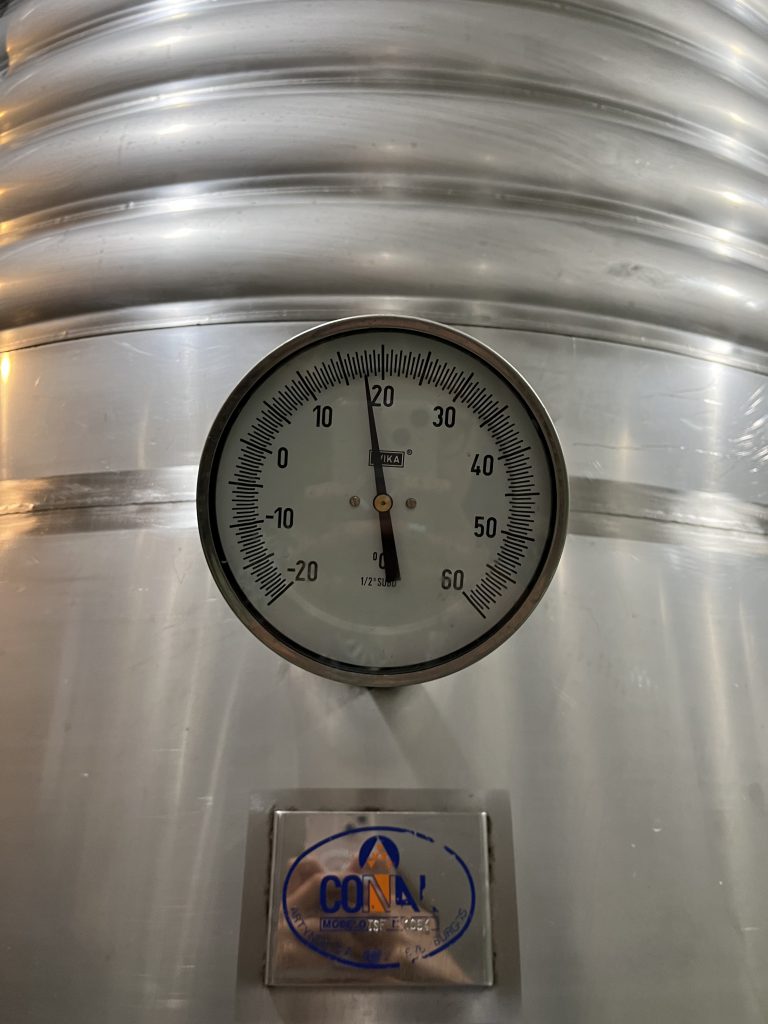
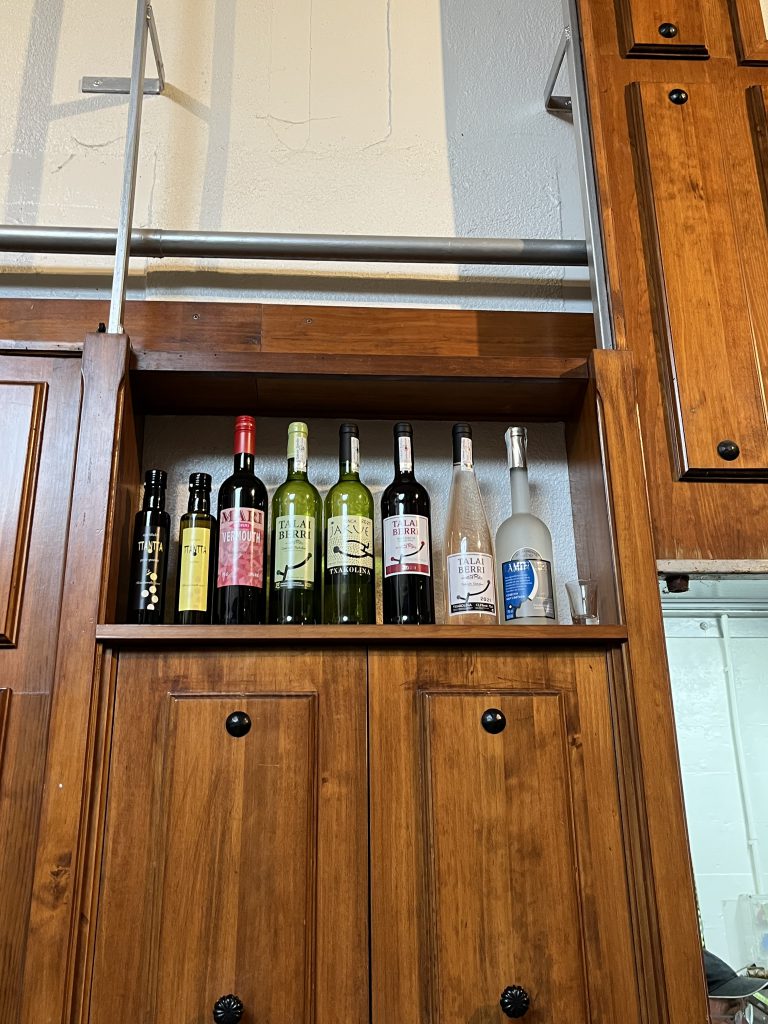
Talai Berri’s specialty is txakoli (and makes up 90% of what they produce), however they also produce red wines, rose, vinegars and aguardiente. Each bottle of wine produced by Talai Berri comes with the coveted sticker noting the denomination of origin, which protects the rights of the winemaker and the integrity of the wine itself and the way it is made.
This was my very first trip to a winery. My only previous experience was as a child, visiting the cellar of a good family friend in Massachusetts where he harvested his own grapes and made and bottled his own wine – but not at all on the same scale as Talai Berri. Standing out on the terrace, even in the rain, made me feel at peace. I watched the pilgrims on their journey through the north route of El Camino pass by. I loved the vastness of it all and I liked how the world felt so big.
